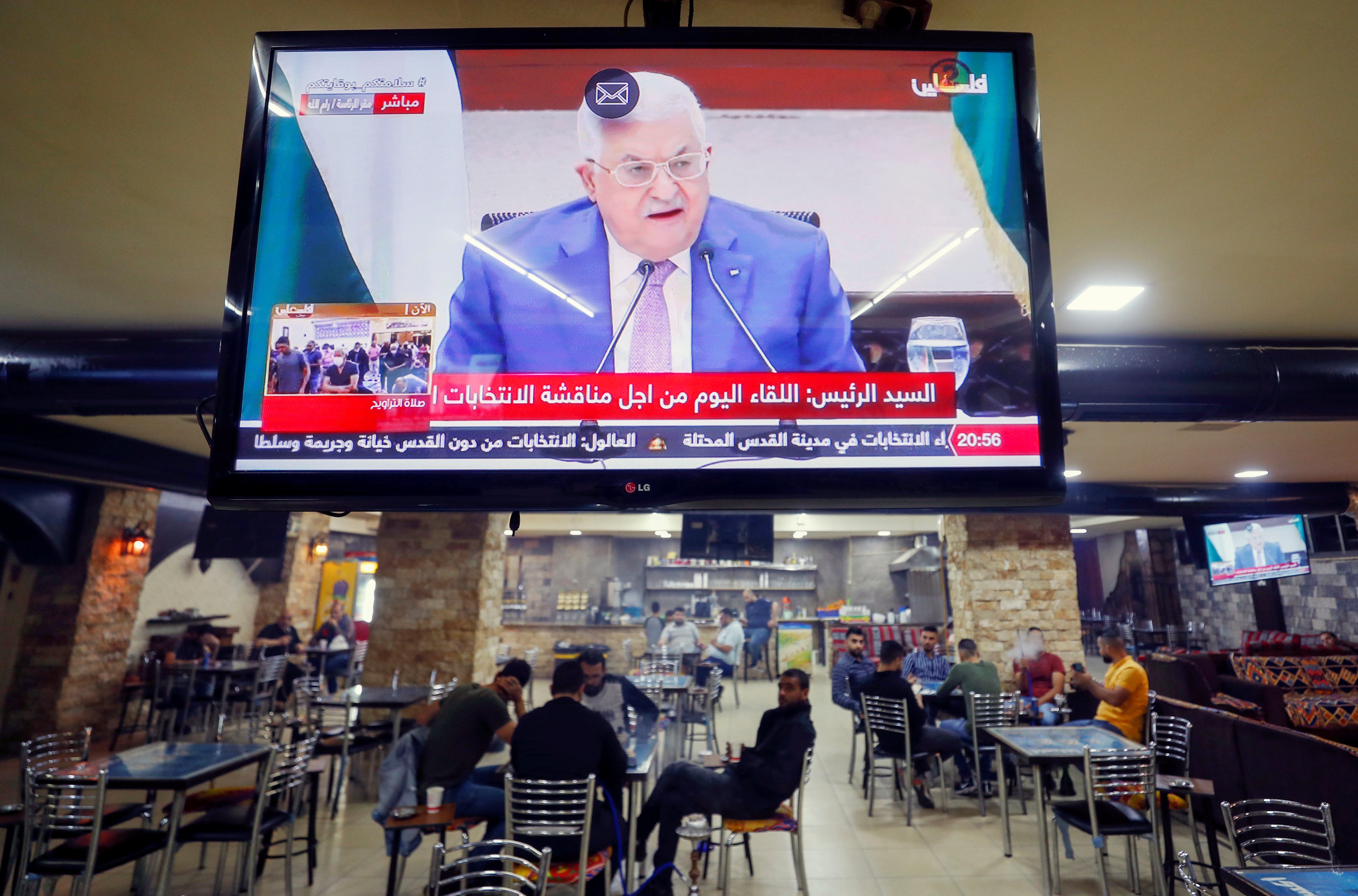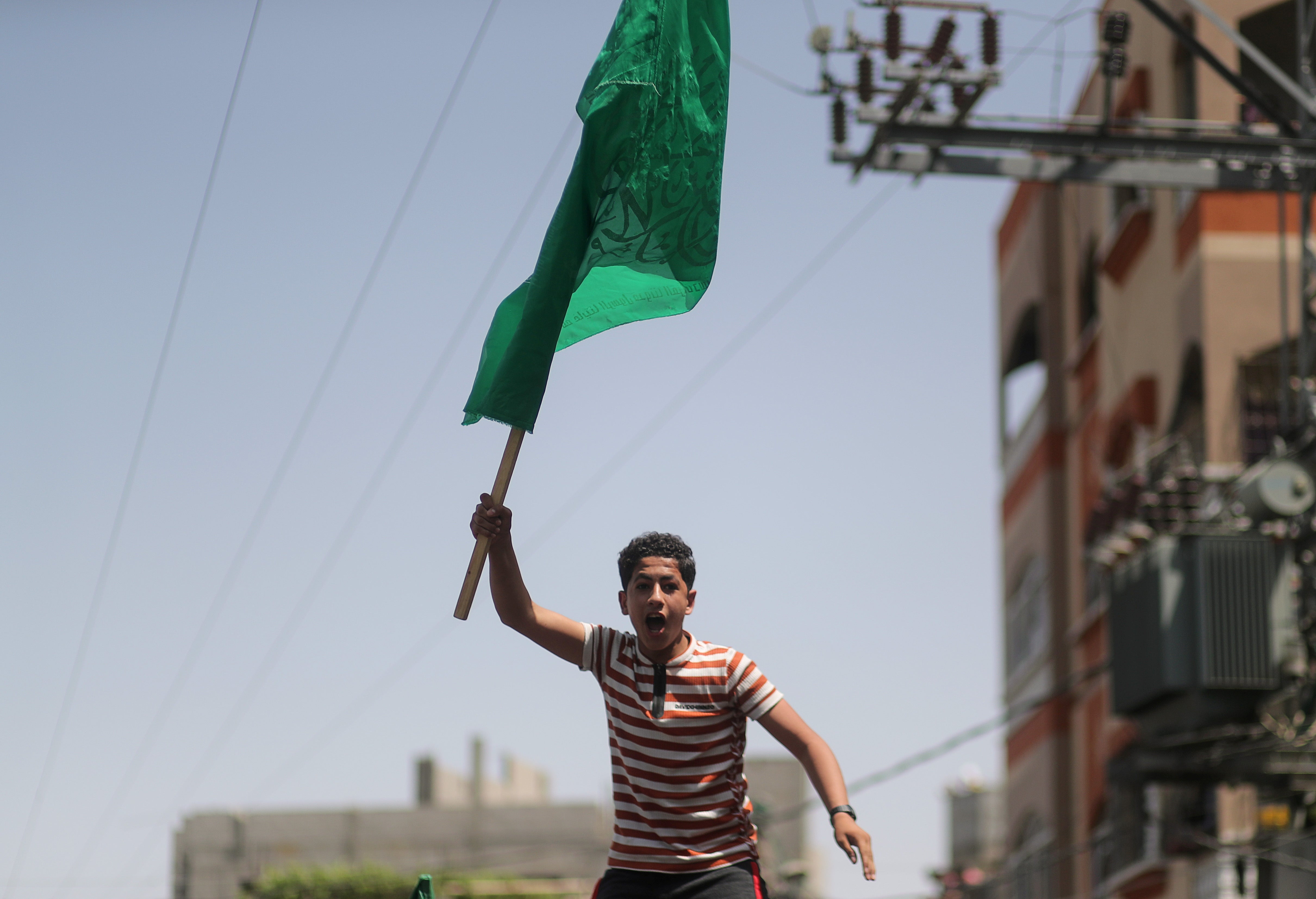Why a cancelled Palestinian election is bad news for all, not just those in Gaza and West Bank
Palestinians had been due to vote for the first time in 16 years but now their political future is even more uncertain, writes Bel Trew


It is hard to overstate the significance of the moment when Palestinian president Mahmoud Abbas announced there would finally be legislative and presidential Palestinian elections, the first in 15 years.
It was a chance for Palestinians to finally have a say about their stale and out of touch leadership: Abbas himself won a four year term in 2005 and has extended that for 12 additional years.
There was feverish speculation any vote could even see a solid rapprochement between the occupied West Bank, where Abbas’s western-backed Palestinian Authority exercises limited self-rule and Gaza, ruled by Hamas militant group.
Uniting the bitterly fractured Palestinian leadership could see them secure international support in the deadlocked peace process.
It would also allow the leaders to better confront the encroaching impact of the Israeli occupation including settlement expansion in the occupied West Bank and the isolation of Gaza which has been strangled by a punishing 14-year-long Israeli and Egyptian blockade.
And so it was no surprise that there was a rush of political engagement, particularly from the youth and women. An increased women’s quota (26 per cent) saw that over 4,000 of the nearly 14,000 registered candidates were women, according to the International Crisis Group.
In total, 36 groups submitted lists of candidates by the 31 March deadline.
But just a few weeks later, that chink of light on the horizon has flickered and finally gone out.
Last week, Abbas announced that the legislative and presidential polls, which were set for May and July, would be indefinitely postponed until Israel committed to allowing voting to take place in East Jerusalem, which Israel effectively annexed after capturing the area during the 1967 Middle East war.
Voting in East Jerusalem is stipulated in the Oslo Accords, the interim peace agreements signed by the Israelis and Palestinians in the 1990s.
This is a huge issue for Palestinians who see the city as the capital of their future state. But many experts argue the Jerusalem issue was just an excuse for postponing the polls.
Trouble has brewed for Abbas and his support base since Fatah unexpectedly split into three blocs: The first two being Abbas’s official list, and another a slate of candidates tied to Mohammed Dahlan, an ex-Fatah security chief now living in a sort of exile in the UAE.
The third and the most surprising was a reformist list led by Nasser al Qidwa, the nephew of Fatah’s founder Yasser Arafat, and Marwan Barghouti, arguably Palestine’s most famous and powerful prisoner in Israel’s jail, as well as a former street leader and parliamentarian.
Barghouti was also the favourite to win the presidency, a disaster for Abbas’s bloc and the Israelis.
The split seriously threatened Fatah’s chance of Abbas-led bloc winning and at the same time all but guaranteed that Hamas would emerge as the largest party once again as they did during the last legislative election in 2007.
Apart from seeing Abbas’s bloc lose it was a logistical nightmare for western countries like the US and UK who, like Israel, have designated all or parts of Hamas as a terrorist organisation.
The lack of critical response from the UK and the US to the effective cancelling of the elections is telling.
“We know that elections all along were going to be a power sharing agreement between Fatah and Hamas but the split in Fatah meant this was no longer going to be the case,” said Yara Hawari, a Palestinian policy analyst with the Al-Shabaka think tank.
“I think postponement happened because the powers that be – namely Abbas – could not guarantee the continuation of the status quo.”
And so she said rather than the burden of blame being on Israel, the Palestinian Authority is also responsible.
“Jerusalem is used time and time again as an excuse by the increasingly corrupt and authoritarian Palestinian Authority. While Israel has to be held responsible for its repression of Palestinian activists and expression, I think the PA also has to be held responsible.”

The repercussions of the decision have already seen protests in both Gaza and the West Bank and have sparked concerns there could be an escalation of violence and a deeper rift in the Palestinian leadership.
Dana al-Kurd, assistant professor at the Doha Institute for Graduate Studies, said she fears it might see an increase in support for armed resistance, and acts of violent desperation, as well as conflict between Palestinians.
“It exacerbates the hopelessness of Palestinians and their frustration with the political system,” she said.
“It will make people alienated and fatigued and burned out from the political process – this fuels support for other types of strategies that have higher human cost on Palestinians themselves.”
Amid a surge in violence between Israelis and Palestinians over recent weeks, the added dimension of inter-Palestinian conflict leaves a bleak outlook for the future.
Join our commenting forum
Join thought-provoking conversations, follow other Independent readers and see their replies
Comments